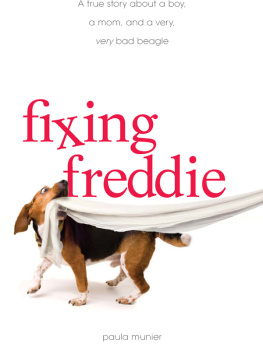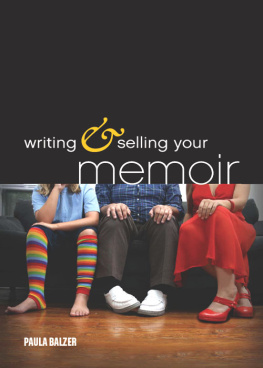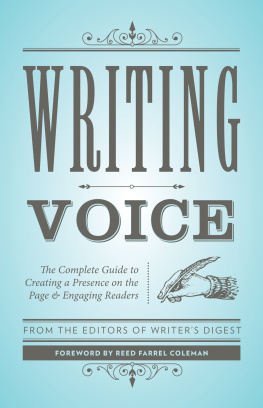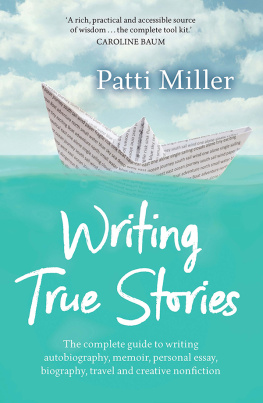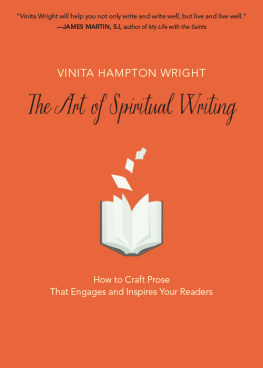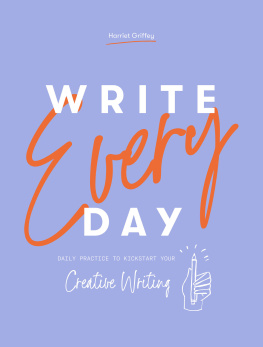Contents
Guide
Writing with Quiet Hands
How to Shape Your Writing to Resonate with Readers
Paula Munier

WritersDigest.com
Cincinnati, Ohio
WRITING WITH QUIET HANDS. Copyright 2015 by Paula Munier. Manufactured in the United States of America. All rights reserved. No part of this book may be reproduced in any form or by any electronic or mechanical means, including information storage and retrieval systems, without permission in writing from the publisher, except by a reviewer, who may quote brief passages in a review. Published by Writers Digest Books, an imprint of F+W Media, Inc., 10151 Carver Road, Suite # 200, Blue Ash, OH 45242. (800) 289-0963. First edition.
For more resources for writers, visit www.writersdigest.com .
Distributed in Canada by Fraser Direct
100 Armstrong Avenue
Georgetown, Ontario, Canada L7G 5S4
Tel: (905) 877-4411
Distributed in the U.K. and Europe by F&W Media International
Brunel House, Newton Abbot, Devon, TQ12 4PU, England
Tel: (+44) 1626-323200, Fax: (+44) 1626-323319
E-mail:
Distributed in Australia by Capricorn Link
P.O. Box 704, Windsor, NSW 2756 Australia
Tel: (02) 4577-3555
ISBN-13: 9781599639253

WritersDigest.com
Cincinnati, Ohio
For Michael,
because in life, as in a good story,
we can never really know
whats going to happen next.
Introduction
Outside of a dog, a book is a mans best friend. Inside of a dog, its too dark to read.
Groucho Marx
I must have been a lonely child. As the sole offspring of a military officer who was often away at war (among other classified activities) and his adoring military officers wife, I spent my childhood in a lot of places. So many different placesfrom Georgia to Germany, Oklahoma to Ohio, and so onthat I cannot recall them all, much less answer those Internet security questions like What street did you grow up on? and Who was your third-grade teacher? My childhood memories are a blur of Army bases, foreign countries, and Mayflower moving vans.
I once heard actor Swoosie Kurtzalso a military brat and an only childdescribe that predicament as the double whammy of loneliness, because youre always the new kid, with no friends at school and no siblings at home to soften the blow. And while that was as true for me as it was for her, I dont remember being lonely as a child. I remember being happy. And the reason I remember being happy, rather than lonely, is twofold: (1) my mother, who adored me as much as she adored my father, and (2) books.
Lets start with my mother, as therapists love to do when they find out Im an only child. (When they find out Im also an Army brat, well, thats a matter for another book.) Mom has always been a reserved person, and the transitory life of the military is tough on reserved people. Making new friends was never easy for her. The constant pressure to succeed in the snobbish social circles of officers wivesa success critical to her husbands career pathforced her to assume an outgoing persona that was not hers by nature.
But my mother did not want me to suffer as she did, and so she taught me to be outgoing, whether I liked it or not. On the first day in a new neighborhood, shed push me out the front door and tell me not to come home until Id made a new friend. Id wander the streets looking for children my age and then bribe one to come to my house with the promise of Pepsi and Pillsbury chocolate chip cookiesmy 1960s mothers idea of the perfect snack.
Moms soda-and-sweets trick worked every time, and I got better at making friends. But despite my growing skills in conviviality and coercion, I remained, like my mother, a bookworm at heart.
The Consolation Of Story
Mom turned to reading for solace and solitude, for entertainment and enlightenmentand I learned to do the same. She read mysteries for escape and catalogs for clothes and decorating magazines for instruction on transforming the ugliest Army quarters into beautiful spaces. She even read esoterica for insomnia: When my dad was in Vietnam during the war, my mother was consumed with worryand only the scholarly prose of The Rise and Fall of the Third Reich by William L. Shirer could lull her to sleep every night.
Mom never finished that monster three-and-a-half-pound tome, and when my dad came home she abandoned the book altogether. She went on to read a series of bestsellers about sex, most notably The Sensuous Woman by J and Everything You Ever Wanted to Know About Sex, but Were Afraid to Ask by Dr. David Reuben, both of which I found hidden under her pillow in the bed she shared with my father when I was a tween. Gross, I thought at the time, but I read them anyway.
My mother taught me that books could not only amuse and console, they could also teach me everything I ever wanted to know about anythingand I was never afraid to ask. I devoured the written wordfairy tales, myths and fables, novels old and new, nonfiction books on astronomy and archaeology and anthropology. I loved libraries, particularly school libraries where I could hide away from the disinterested classmates I felt charged to befriend. Each military post boasted a library as well, and unfortunately my mothers haphazard book-borrowing habits inevitably led to late fees. With typical military precision, the post library would send the dunning notices to my fathers commanding officer, who would hand them to my father, along with a lecture on his inability to manage his wife.
So Mom preferred buying books to borrowing them. Always the vigilant curator of my young life, she disdained the comic books all the cool kids were readingand wouldnt budge on that score. But I quickly learned that whenever I did ask for a twenty-five-cent comic book, shed buy me a one-dollar Nancy Drew novel instead. Soon I had a small library to call my own. (Decades later, to mark the publication of my first book, my parents presented me with a handmade lamp symbolizing my career as a writer. The lampshade is a collage of my magazine and newspaper articles published to date, and the base is a stack of my favorite childhood booksincluding Helen Wellss Cherry Ames: Student Nurse, Volume A of the World Book Encyclopedia, and Desmond Morriss The Naked Ape.)
Like most children who grow up to be writers, I loved to read. I was a good reader. Grandpa Ed, my paternal grandfather, encouraged me. He taught fifth grade and was inordinately pleased that by the tender age of six I could read as well or better than any of his ten-year-old students. We didnt see Grandpa Ed often, as he lived in Indiana and we lived, well, everywhere else, but whenever we did see him, he brought me books. I still have the copy of the Hoosier classic The Bears of Blue River that he gave to me before he died when I was twelve.
But unlike most children who grow up to be writers, I didnt want to be a writer. I didnt know any writers. The only thing close to writers in my world were the soldiers who worked for the Stars and Stripes newspaper, and I dont have to tell you what my father, the Colonel, thought of them. Certainly we didnt associate with any writersor any kind of artists, for that matter. Apart from the Army bands playing John Philip Sousa on Field Day, Memorial Day, Veterans Day, and the Fourth of July, there were no artists of any stripe to be found on the military bases where I grew up.


